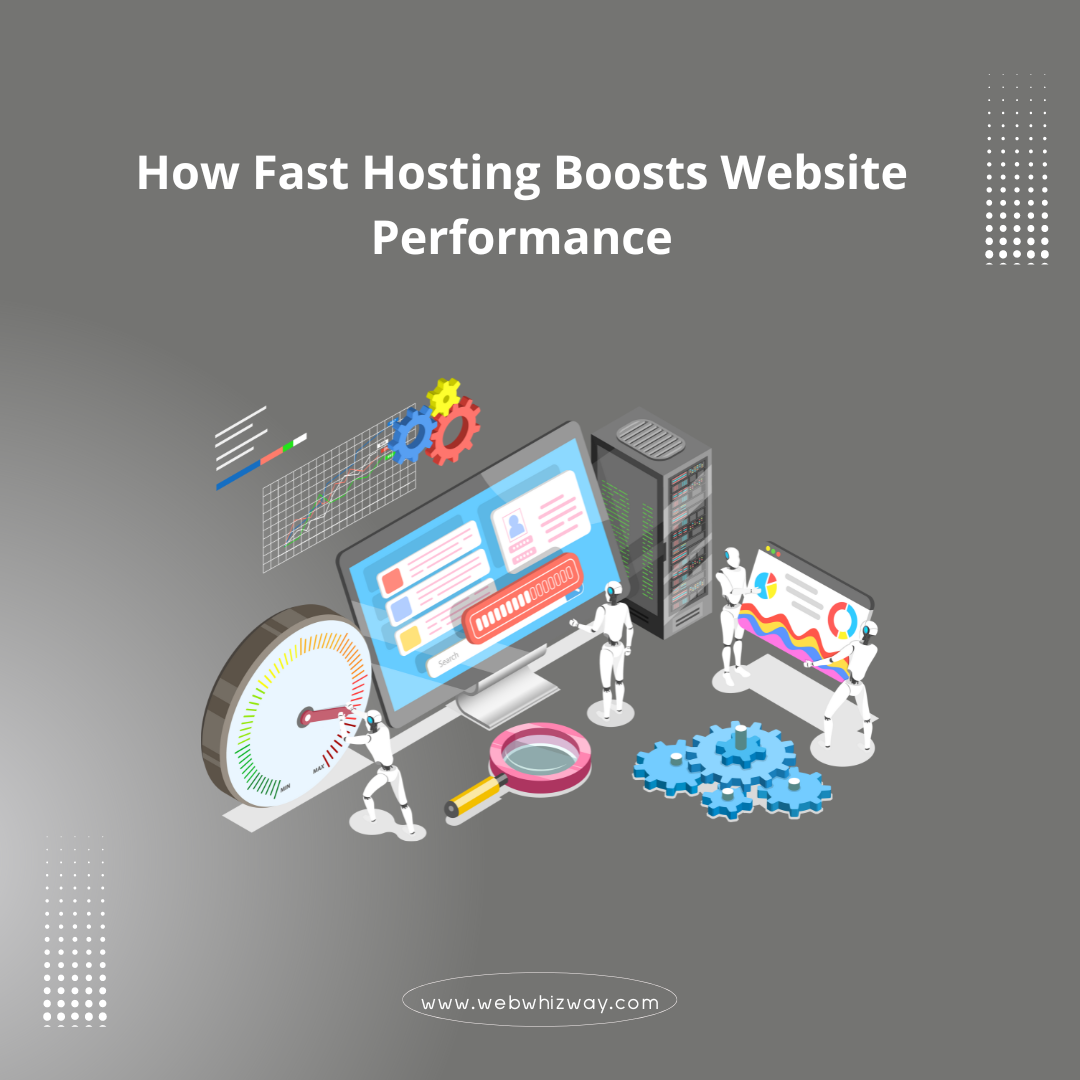In today’s fast-paced digital world, website speed is crucial for online success. The quality of web hosting directly affects a site’s performance. Slow load times drive visitors away, hurt SEO rankings, and lower conversions. Fast hosting is designed to ensure quick load times and optimal user experience.
In this article, we’ll explain what fast hosting is, why speed matters, and how to choose the best hosting provider. By understanding these factors, you can ensure your website runs smoothly and efficiently.
What is Fast Hosting?
Fast hosting focuses on performance, using advanced technologies and high-quality hardware to deliver fast load times. Hosting providers that offer fast hosting optimize their servers with features such as:
– High-performance Hardware: SSDs, fast CPUs, and ample RAM for efficient handling of data.
– Low Latency: Servers located closer to users to reduce response time.
– Efficient Data Handling: CDNs and caching solutions for faster content delivery.
Importance of Website Speed
Speed isn’t just a convenience; it’s essential for retaining visitors, improving SEO, and driving conversions. Let’s explore the main reasons why speed matters.
1. User Experience and Retention
Users expect a website to load in under three seconds. A delay causes frustration, leading to higher bounce rates. A fast site keeps visitors engaged, encouraging them to stay longer and interact more. Additionally, a smooth user experience increases the chances of return visits. Happy users are more likely to become loyal customers.
2. SEO Rankings
Google considers page speed a ranking factor. Faster websites rank higher because search engines prioritize a better user experience. When a website loads quickly, search engines can crawl and index more pages efficiently. Improved load times can lead to higher rankings, bringing in more organic traffic.
3. Higher Conversion Rates
Speed influences conversion rates directly. A one-second delay can reduce conversions by up to 7%. For eCommerce websites, this translates into revenue loss. Therefore, optimizing for speed can boost conversion rates, encouraging visitors to complete transactions or sign up for services.
4. Mobile Optimization
Mobile users are often on slower networks. Fast hosting helps ensure a better experience for them, reducing load times on mobile devices. Google’s mobile-first indexing makes this especially important. Fast hosting enhances mobile performance, reducing bounce rates and improving overall satisfaction.
Factors Affecting Hosting Speed
Several key factors influence how fast your website performs. Let’s take a closer look at these elements.
1. Server Location: The distance between the server and the user affects load time. Hosting providers with global server locations allow users to choose the closest server, improving speed. With more server locations, users experience reduced latency and quicker page loads.
2. Bandwidth and Resource Allocation: Shared hosting divides resources among multiple websites, which can slow down performance. VPS or dedicated hosting allocates more resources, ensuring faster performance, especially during traffic spikes. Choosing a plan that meets your traffic needs helps maintain speed.
3. Content Delivery Network (CDN): CDNs distribute content across multiple servers worldwide. This ensures that users can access data from the nearest server, reducing load times significantly. A CDN improves global performance, especially for media-rich websites.
4. SSD Storage: SSDs are faster than traditional HDDs. They enhance server performance by reducing the time needed to read and write data. Hosting providers that offer SSD storage can significantly speed up your website. Prioritize hosting plans that include SSD storage for faster load times.
5. Caching Mechanisms: Caching stores frequently accessed data for quick retrieval. This reduces the need to request information from the server each time, speeding up performance. Providers that offer built-in caching solutions improve website speed, particularly for returning users.
6. HTTP/2 Protocol: HTTP/2 improves website speed by allowing multiple requests over a single connection. Hosting providers that support HTTP/2 provide better load times, especially for media-heavy sites. This protocol enhances server efficiency and reduces latency.
How to Choose the Right Fast Hosting Solution
Choosing the right hosting provider is crucial to achieving top speed. Here are key factors to consider:
1. Understand Your Website’s Needs: Evaluate your website’s size, traffic, and complexity. A small blog may be fine with shared hosting, but a large eCommerce site will need VPS or dedicated hosting. Matching your hosting plan to your needs ensures better performance.
2. Look for Speed-Optimized Features: Choose providers that offer SSD storage, CDNs, caching, and HTTP/2 support. These features significantly enhance website speed. Make sure these options are included in your plan for optimal performance.
3. Uptime and Support: Speed means nothing if your site isn’t online. Look for hosting providers with high uptime guarantees and responsive customer support. This ensures quick resolution of issues. Good support ensures that speed isn’t compromised during downtime.
4. Scalability: As your website grows, your hosting needs may change. Look for hosting providers that offer scalable plans, allowing for easy upgrades. Scalable hosting plans ensure that your site maintains speed as it grows.
5. Reputation and Reviews: Research potential hosting providers by reading customer reviews and feedback. Choose providers with a proven track record for speed and reliability. Providers with good reputations are more likely to offer the speed and performance you need.
Conclusion
Fast hosting is essential for any website that values performance. It affects user experience, SEO rankings, and conversion rates. By choosing a hosting provider with optimized speed features like SSDs, CDNs, and caching, you can ensure your website loads quickly and efficiently.
It is a powerful tool to improve the performance of your site and enhance user satisfaction. Prioritize speed when selecting your hosting provider and give your website the best chance to succeed.
